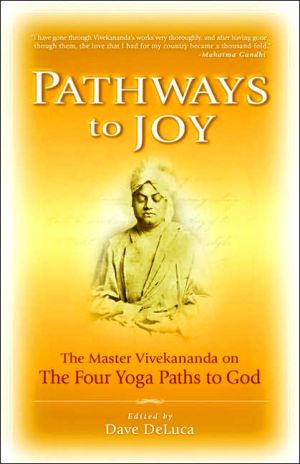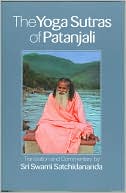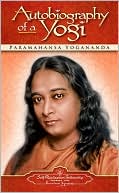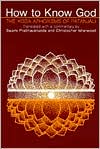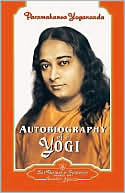Pathways to Joy: Master Vivekananda on the Yoga Paths to God
At the 1893 Parliament of Religions in Chicago, Swami Vivekananda transformed Western thinking. He showed that, far from being an exotic novelty, Hinduism was an important, legitimate spiritual tradition with valuable lessons for the West. Pathways to Joy is a selection of 108 of his sacred teachings on Vedanta philosophy. In accessible and powerful prose, Vivekananda illuminates the four classical yoga paths — karma, bhakti, raja, and jnana — for the different natures of humankind. The...
Search in google:
At the 1893 Parliament of Religions in Chicago, Swami Vivekananda transformed Western thinking. He showed that, far from being an exotic novelty, Hinduism was an important, legitimate spiritual tradition with valuable lessons for the West. Pathways to Joy is a selection of 108 of his sacred teachings on Vedanta philosophy. In accessible and powerful prose, Vivekananda illuminates the four classical yoga paths — karma, bhakti, raja, and jnana — for the different natures of humankind. The messages focus on the oneness of existence; the divinity of the soul; the truth in all religions; and unifying with the Divine within. Invaluable and inspiring, the selections also explore karma, maya, rebirth, and other great revelations of Hinduism. Publishers Weekly The Indian guru Swami Vivekananda had the gift of being bicultural. He brought the Vedanta philosophy of Hinduism to the 1893 World Parliament of Religions and prepared the way for the flowering of yoga in the West. Vivekananda's accessible teachings have been edited and compiled in countless ways, and this edition by DeLuca, a student of Vedanta, is intended to offer students of yoga something to think about, since Indian yoga is more than a series of physical postures. The guru gently introduces what may be unfamiliar ideas from Hinduism, such as maya, or illusion. The book's organization into broad themes, including the four yoga paths, is logical in concept yet fuzzy in execution, because the writing doesn't always lend itself to clear differentiation. "Oneness" is a pervasive teaching for Vivekananda, and ruminations on it end up scattered throughout the book. The result is somewhat repetitive and disorganized. Nor are there citations showing where the writing is drawn from, except in the appendix. End material, including a reading list, glossary and biographical material, is helpful. This is not the best introduction to Vivekananda, but the swami is so clear himself that he needs little help. (June) Copyright 2006 Reed Business Information.
\ Publishers WeeklyThe Indian guru Swami Vivekananda had the gift of being bicultural. He brought the Vedanta philosophy of Hinduism to the 1893 World Parliament of Religions and prepared the way for the flowering of yoga in the West. Vivekananda's accessible teachings have been edited and compiled in countless ways, and this edition by DeLuca, a student of Vedanta, is intended to offer students of yoga something to think about, since Indian yoga is more than a series of physical postures. The guru gently introduces what may be unfamiliar ideas from Hinduism, such as maya, or illusion. The book's organization into broad themes, including the four yoga paths, is logical in concept yet fuzzy in execution, because the writing doesn't always lend itself to clear differentiation. "Oneness" is a pervasive teaching for Vivekananda, and ruminations on it end up scattered throughout the book. The result is somewhat repetitive and disorganized. Nor are there citations showing where the writing is drawn from, except in the appendix. End material, including a reading list, glossary and biographical material, is helpful. This is not the best introduction to Vivekananda, but the swami is so clear himself that he needs little help. (June) Copyright 2006 Reed Business Information.\ \
